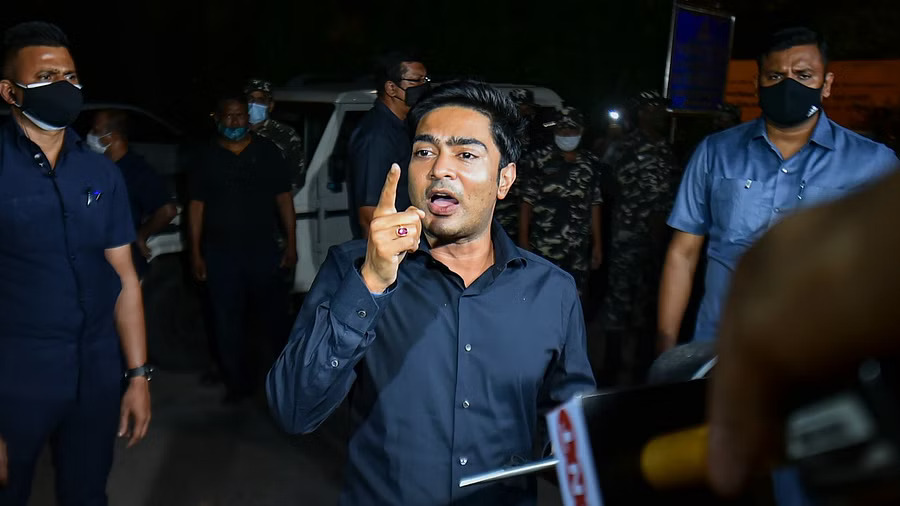In a sharp rebuke, Trinamool Congress (TMC) leader Abhishek Banerjee has criticized the Enforcement Directorate (ED) for issuing a summons to him on the very day he was scheduled to attend his first meeting as a member of the Parliamentary Standing Committee on India’s External Affairs. Banerjee’s response comes amidst a backdrop of political tension, with opposition parties alleging political vendetta in such actions by investigative agencies.
Abhishek Banerjee, who is the nephew of West Bengal Chief Minister Mamata Banerjee, was recently appointed as a member of the Parliamentary Standing Committee on India’s External Affairs. However, on the day of his first scheduled meeting, the ED summoned him for questioning in connection with a money laundering case.
In a strongly-worded statement, Abhishek Banerjee expressed his displeasure, labeling the timing of the summons as “suspicious” and alleging that it was a deliberate attempt to disrupt his parliamentary duties and intimidate him.
He stated, “It is ironic that on the very day I am supposed to contribute to important discussions on India’s foreign affairs, the ED chooses to summon me. This raises serious questions about the intentions and timing of such actions. I am committed to fulfilling my parliamentary responsibilities and will not be deterred by such tactics.”
Several opposition leaders and parties have voiced their concerns over the alleged misuse of investigative agencies for political purposes. They argue that such actions have the potential to undermine the democratic process and erode the credibility of institutions.
The ED, on the other hand, has maintained that its investigations are conducted independently, based on merit, and without political bias.
The summons issued to Abhishek Banerjee comes at a time when political tensions are running high, especially in states where regional parties have been gaining prominence. The situation has once again brought to the forefront the debate over the separation of powers between executive agencies and elected representatives, emphasizing the need for transparency and accountability in such matters.










